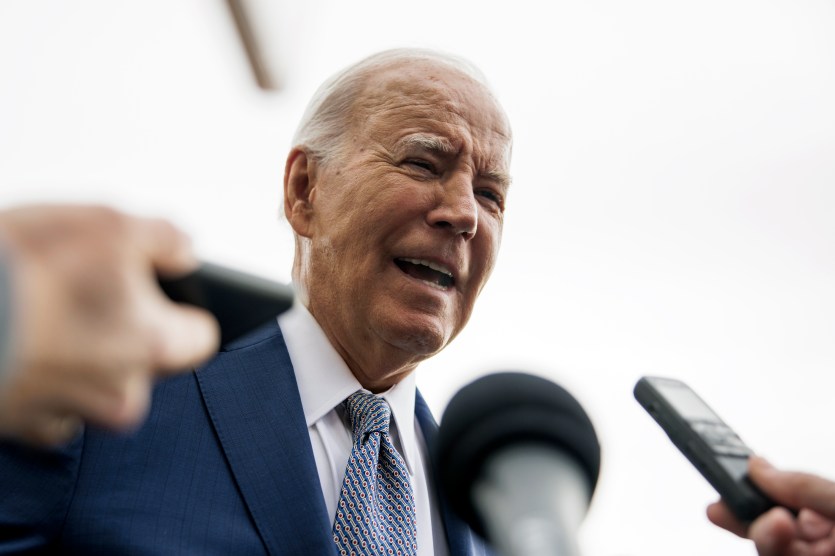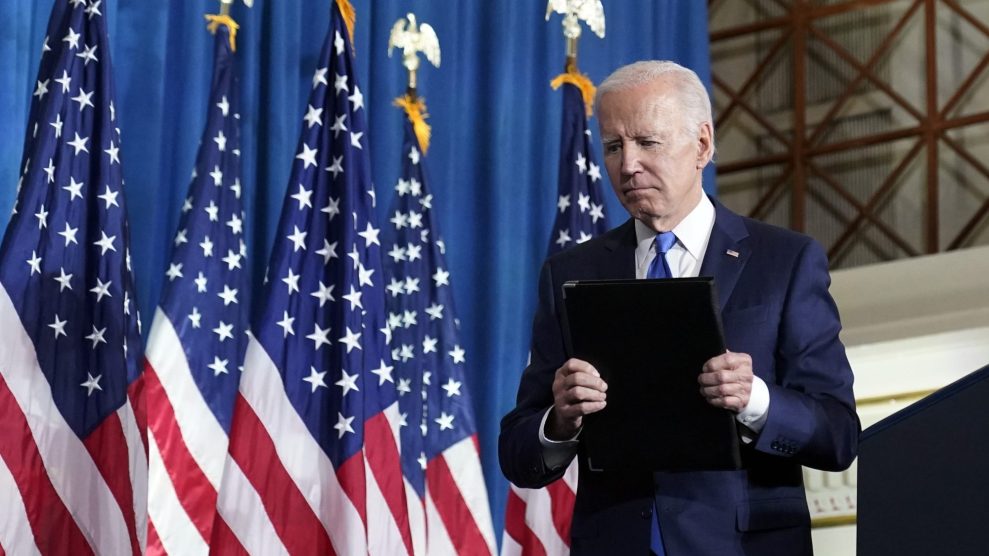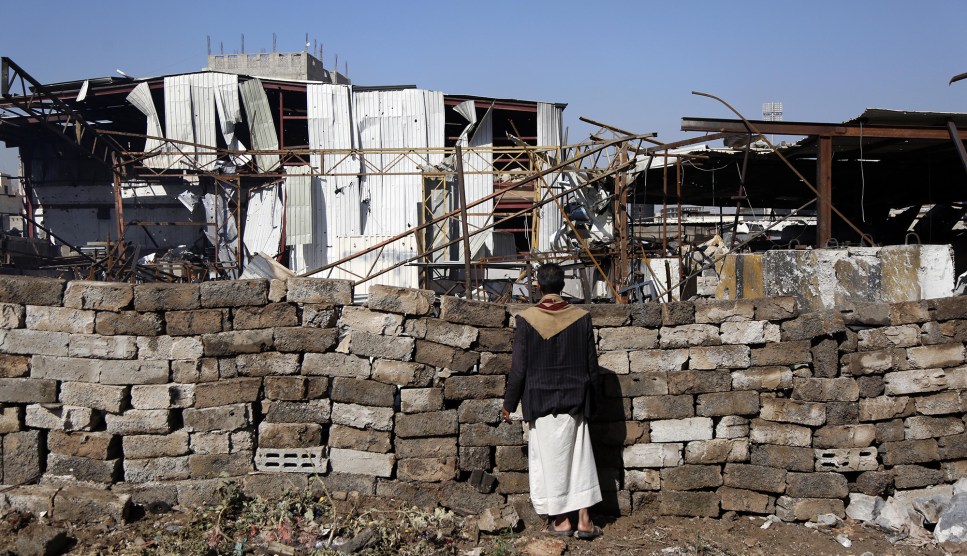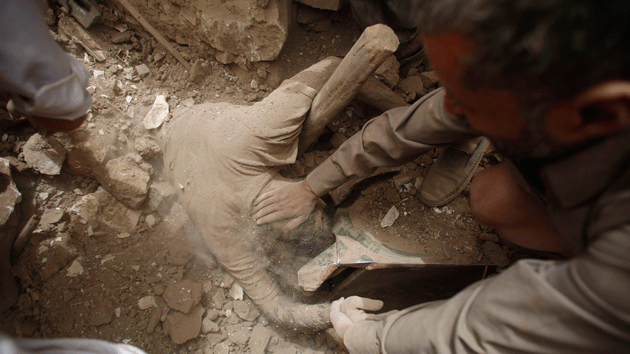
Samuel Corum/Getty Images
The Biden administration says that it has being trying to prevent the ongoing war in Gaza from spreading to other parts of the region. Yet despite these efforts, Israel’s massive bombing campaign, which has claimed tens of thousands of civilian lives, has spurred fighting between Lebanon-based Hezbollah and Israel, attacks from Iran at targets in Syria, Iraq, and Pakistan, and assaults on shipping in the Red Sea from Houthi forces in Yemen. The latter has led to US strikes against Houthi military targets within Yemen. And once again, the United States is involved in warfare in a country little-known within America. It may be hard for many Americans to evaluate whether the Biden administration raids are an appropriate and effective response. So I invited Matt Duss, the executive vice president of the Center for International Policy and a former foreign policy adviser to Sen. Bernie Sanders, to explain the basics of the Yemen conflict and share his view of President Biden’s response to the Houthi attacks.
Duss contends that Biden is on the “wrong course” in Yemen. He was particularly unimpressed when Biden a few days ago acknowledged the US attacks were not stopping the Houthis but would continue. Duss told me:
I heard that answer, and it chilled me a bit. It’s kind of a similar approach Israel took to Gaza for years and years. They called it “mowing the lawn.” We know we’re not going to stop those rocket attacks. We’re going to maybe pause them. We’re going to degrade their abilities by bombing them every once in a while. But the problem just ultimately gets worse and worse. And at some point it explodes in ways you cannot predict.
Duss notes that the first step toward addressing the intensifying military conflict in the region—including this limited (for now) fighting in Yemen—is the obvious one: a ceasefire in Gaza.
See the rest of my chat with Duss here:













